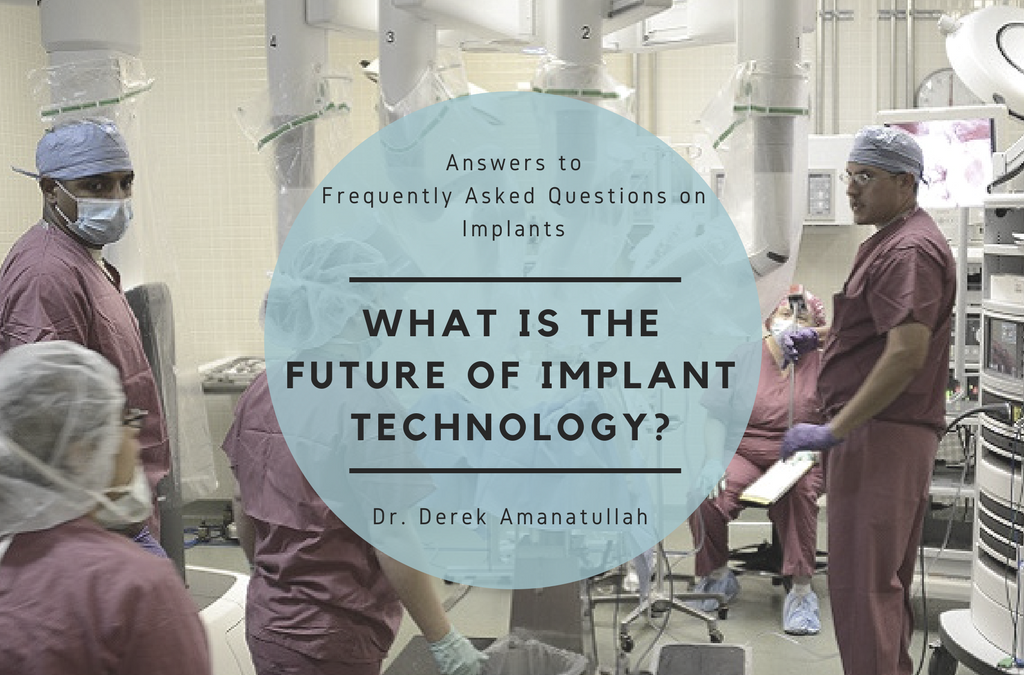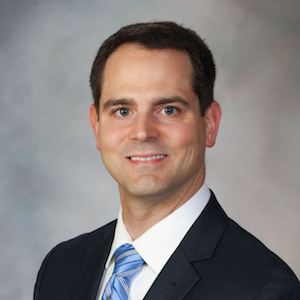Interviewer:
Hello doctor Amanatullah! How are you doing?
Dr. Derek Amanatullah
Great, thanks again for having me.
Interviewer:
Absolutely! Let’s talk today about implants. What are the most popular types of implants?
Dr. Derek Amanatullah:
So, I would say worldwide there are really two types of implants that got put in in general, and they differ for hips and knees. The two types really separate around the utilization of cement.
So there are cementless implants, meaning they have a porous surface and that allows your bone — actually tricks your bone into thinking those pores are actually bone and their bone cells grow into it it actually incorporates into your body.
The other one is cement. So, cement is like you would use anything else to stick to things together it sticks that metal piece together with your bone and actually interdigitates inside of the bone to hold it there.
So you would think that the cementless one would be the best. In fact, almost all knee replacements are cemented for lots of different reasons. Recently we’ve toyed with cementless knee replacements. And actually cementless knee replacement have a very poor track record until recently until modern implants have been in place and that’s for numerous reasons.
Well when we talk about hip replacements the vast majority of hip replacements in the world are actually cemented.nAnd they’ve been cemented for a long time. In fact the first FDA approved hip replacement even in the US was cemented.
But because of some complications not related to the cement byt related to particle wear that can happen on that plastic side of the joint, people developed cement was joint replacements and that is the dominant type of joint replacement used in the United States now.
Interviewer:
When you as the surgeon have to decide which type of implant to give someone, how do you decide?
Dr. Derek Amanatullah:
Yeah so I think that patients and surgeons wanna use the most latest and greatest implants to get the best results. And I think that this is different from a car or your TV, because what you have to imagine is when that these things are developed they’re tested, they’re vetted, there put in patients for initial trial. But what we want is a result that lasts thirty years, fifty years, decades, and there’s no way to study those before they’re released. They get studied kind of post market.
And so you can imagine a scenario that happened recently with, say, metal on metal joint replacements, where we thought everything was great. We put them in and it turns out the track record of those joint replacements aren’t so good.
And so I think our definition of what implants to pick and how we should pick them has changed.
I look for the latest and greatest in the track record of the implants, unless there’s a compelling reason why it’s going to make my practice so much better. And so I use implants that would last for decades upon decades, that have been proven out over time to be the best implant available, and try not to gravitate to the newest latest greatest hottest thing unless I think that’s going to change and optimize my practice or my patient outcomes.
Even that I would use experimentally and make sure my patients knew we were using it because again it’s not about the result two or three years from now, like most of the FDA studies would allow us to do, it’s about the result decades from now keeping our eye on that prize is probably more valuable than using the latest and greatest thing.
Interviewer:
So speaking of the latest and greatest thing, you know, the fun, the flashy, what is the next big thing on the horizon for implant technology?
Dr. Derek Amanatullah:
I think a lot of the implant technology is there to come on board or not going to focus on bearing surface — we’ve heard seen a lot of focus on that.
People may have heard of metal on metal bearings or ceramic on ceramic bearings. I think a lot of these things are falling away with modern highly cross linked polyethylene, which is the plastic that we use on the on the joint replacements.
I think a lot of the new implants technologies will focus on addressing new questions. Those questions would be like suppressing infection, what kinds of coatings, what kinds of treatments can we use to decrease infection for our patients and how can we link those to the implants. What kind of implants will grow in faster or utilize the body’s resources better?
I also think, again, you’ll see new technologies come on board that’ll help us with the implants in better. How can we more ideally or patient-customize the placement of implants and how can we be more exact and precise in their placement.
So I think the implant itself will change very little. Some of the processes around the implant will help our patients, and then maybe even some of the processes around the implant will help the surgeons do even more accurate more precise job.
Interviewer:
If there’s one thing that you are the most excited to see coming up in terms of either the implant itself or the technology surrounding it, what would it be?
Dr. Derek Amanatullah:
So I there’s a I think there’s some things that need to be vetted — so I think recently see the rise of robotic surgery. We had a surge in patient customized instrumentation. We had a surgeon navigated joint replacements.
People are toying with changing the position of components to be in a patient-specific location. I think robotics remains a very interesting point of view, whether it can give us the accuracy that we want so surgeons are just like people they have accuracy probably within a few degrees. The question is whether robotics can make that better. I find that exciting, and whether it being better actually makes a difference for patients we don’t want to be expending money on on robots that we don’t need. So I think that’s gonna bear out over the next few years.
I remain the most excited about technologies that are going to suppress infection. I’m very much interested in infection, and I think there are some very interesting things will come online, and I view you infection is the challenge of my generation of surgeons to solve. And I think you’ll see over the next twenty years or so the emergence of implants that will actually help our patients stable off complications I I remain the most excited about that, but yet optimistic about technology it’s like robotics that will help us decision implants better.
Interviewer: We’ll be on the lookout for your name on some papers that help to forward those causes.
Dr. Derek Amanatullah:
No worries for sure.
Interviewer:
All right thank you so much Dr. Amanatullah!
Dr. Derek Amanatullah:
Thank you.


